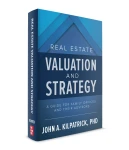Allison versus Exxon
If you follow the litigation news, you’re probably aware that this past week, a state-court jury in Towson, MD, awarded a group of plaintiffs $495 million in actual damages plus about $1 Billion in punitives in the mass-tort matter of Allison v. Exxon. The facts of the case are pretty straight-forward: Exxon leaked a significant amount of MTBE-laden gasoline into the drinking water aquifer of an unincorporated suburban Baltimore community known as Jacksonville.
I was the sole damages expert testifying for the plaintiffs, and methodologically, this was one of the more intriguing cases in my career. We utilized a mass-appraisal hedonic model for my determination of the unimpaired value of the properties as of February, 2006 (the date of the spill) and then amended this model to add factors for the impact of the contamination on these property values (using contingent valuation, meta-analysis, and case studies in the absense of a well-functioning transactional market). We also developed business loss determinations, loss of use-and-enjoyment measures, and present value calculations for medical monitoring costs.
Exxon literally threw everything they had into the damages aspect of the case — they knew this case had the potential to be both big as well as precedent-setting. They hired a veritable battalion of big-named appraisers, professors, modeling experts, and consultants, and one of their two damages testifying experts was a hold-over from the Exxon Valdez case. The multiple days of deposition, motions-in-limine hearings, and trial testimomy (and cross examination) were among the toughest I’ve ever seen.
Naturally, I’m always pleased when my clients win, but not for the reasons people tend to think. I’m not in this for the “win or lose” part of it, but it is intellectually challenging to climb these sorts of mountains, and when a court agrees with me, I’d be disingenuous to say it’s not intellectually affirming.
I’ll be developing a white-paper on this case very soon, and by some coincidence, I’m slated to speak in Manhattan at the semi-annual meeting of the American Academy of Justice next Monday on the topic of “Use and Enjoyment Damages”. As you might guess, this case will be featured in that talk — and probably plenty of subsequent ones.



I was the expert psychiatrist in this case. Although the justice has been handed, the peoples suffering will remain. Money doesn’t buy everything.
LikeLike
Abdul Malik, M.D.
July 5, 2011 at 6:32 am
Dr. Malik makes an excellent point. All I can do is attempt to monetize the damages suffered by the property owners.
LikeLike
johnkilpatrick
July 5, 2011 at 8:00 am
How long where you involved in the case?
LikeLike
Rich
July 6, 2011 at 6:23 am
Rich — About 4 years, from “opening of the file” to today. Reflecting back on it, we MAY have had a “heads up” from our clients ahead of time that this case was coming down the pike, and if so, I probably paid a visit to the affected area even before that. But our actual workfile wasn’t opened until July of 2007.
That having been said, many (most?) cases like this move in a very non-linear fashion. We really cranked up our work in 2009.
LikeLike
johnkilpatrick
July 6, 2011 at 7:24 am
John:
I appreciate the humble aspect of your post. I really like your comment above about the “win or lose” part of it.
A lot of appraisers I know think that THEY won or lost a case.
When you think about all the elements that actually go into a case and all the legal issues and evidentiary issues, to think that the appraiser alone is the deciding element in any case is the height of hubris.
I like to think that my clients enjoy frequent success in court because they hire skilled professionals (like us as well as other attorneys and experts) and the true professionals are selective about the actual merits of the cases we decide to get involved with after the background details have been explained to us.
The few losses I have experienced for my clients in a litigation setting tend to be those cases where you thought the client may have a shot on a wing and a prayer on some new ground-breaking set of facts and circumstances or on some legal argument that may go one way or the other. You warn your client of the risks that your appraisal may not even see the light of day due to the possible legal issues but they go ahead with the case anyhow and it gets summarily dismissed much to your Client’s dismay.
I don’t feel bad about those cases because there is very little one can do when the premise of your appraisal is not accepted by the legal interpretation of the situation at hand and you explained the risks of the possible non-acceptance of the valuation premises to your Client. As long as your premises have grounding in statute, case law, and/or market reality, you have a leg to stand on but you should warn the Client that the Trier of Fact (judge or jury) may not agree with your appraisal scope and/or premises.
LikeLike
Charles E. Jack IV, MAI
July 6, 2011 at 10:40 am
Fascinating, I look forward to your paper on this.
LikeLike
Ray Burt
July 6, 2011 at 12:11 pm